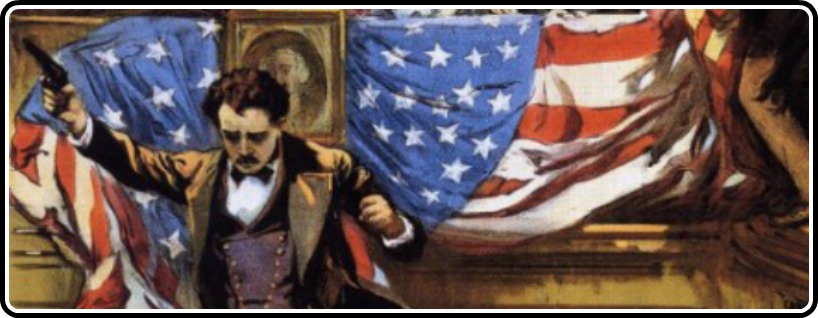Almost 100 years following its initial release, D.W. Griffith’s magnum opus, ‘˜The Birth Of A Nation,’ is still both one of the most influential and impactful pieces of art to ever grace the silver screen, as well as being one of the most controversial and in many ways heinous pieces as well.
Now, thanks to Kino, the world has yet another chance to dig into this film, this time, and for the first time, in stunning 1080p.
Clocking in at a dense 192 minutes, ‘˜Birth’ follows the story of two families, a Southern and a Northern family, during the Civil War and its immediate repercussions. At its core a love story, ‘˜Nation’ is the rare piece of work that changed the world in and outside of the film landscape. Content wise, it’s a vicious piece of racist filmmaking. With brutal depictions of African Americans directly on the surface of this film, cartoonishly so, the film is one of the most difficult motion pictures to get into. However, it’s also one of the most influential and cinematically inventive. Simply put, it’s a monster, in more ways than one.
Any conversation of ‘˜Birth’ needs to start and stop with the content. A racist political cartoon of a film, the Loony Tunes characters that we follow truly hinder the watchability of this film. Performance wise, the film isn’t very strong. Lillian Gish is great here, but outside of her rather slight performace, the film doesn’t hold up as much of an actor’s showcase. Based on the Thomas Dixon novel, The Clansman, the film is admittedly brutal in its racial discussions, often slandering African Americans as nothing more than a culture of chicken eating heathens. And its about as subtle in its depiction as a sledgehammer to the coccyx.
However, it’s as close to a ‘˜game changer’ as the film world has ever had. Featuring some of the most beautiful cinematography of the era, the movie looks glorious in HD. Action set pieces that are still, to this day, some of the best ever printed to celluloid, the film is a truly thrilling piece of work. For a few moments, particularly during the action sequences (primarily a lengthy one near the middle of the film), you forget about the unbearable narrative unfolding in front of your eyes. It is in that brief moment, that fleeting second of just pure cinematic bliss, that makes this whole experience almost, almost, worth the horrifying hours preceding and following.
Paired on the same release date as Griffith’s ‘˜Way Down East’ (stay tuned for a review of that this week as ), ‘˜Birth’ is one of the cinematic landmarks that, to this day, holds an immense amount of weight. With an African American in the White House, it’s interesting to see how far we as a nation have come. However, with political ads like the recently released ‘˜Stronger’ ad from one Rick Perry, the country still has a ways to go when it comes to true civil rights. This is a piece of history that can be undone. You can’t erase history, when its written in lightning.
Now, as far as a release goes, this is an oddity. Yes, the 2011 transfer is absolutely wonderful. The score is killer, and both the visual and audio regarding the film really pop here. A three-disc set, the first disc features only the film (which admittedly is restored from archival 35mm elements), as well as introductions from Griffith and one Walter Huston. The remaining two discs are exactly the same as the previously released DVD. Disc two features a making of short, and also the 1993 transfer, which is not in HD here. Finally, the release comes with a series of Civil War shorts from Griffith, excerpts of program books, and some archival documents looking at the film’s 1922 re-release and the controversy surrounding that.
Overall, this is an odd film and release to recommend. The transfer is reference quality, yes. However, the film itself is so despicable, and at nearly 200 minutes long, it’s not a world you’ll be visiting shortly. That all said, this is one I firmly believe any cinephile should own. It’s a masterful piece of filmmaking, horrible content or not.




I’ve been debating whether to pick this up or not. Too many movies, too little time and money. You follow the general trend of reviews about this masterwork, horrifying content and exhilarating filmmaking with the first pointing your thumb down and the second pulling it back up. I see it a bit differently. Clearly, the film is a cinematic landmark technique-wise, so exciting that I barely slept a wink after watching it for the first time. Or maybe it was the content that kept me awake. Racism, then and now, is a real thing and it is important to be reminded on occasion as to just how ugly it is. Growing up, I’d often visit my grandfather in Oklahoma. He’d sit me on his lap and tell me stories about the black family next door that were more ugly and horrifying than anything in Birth of a Nation. Because of those experiences, I’ve always looked at the film as the truth, not about blacks but about racist whites. Another thing that has always intrigued me is how neither my grandfather or Griffith considered himself to be racist. They were merely adhering to what they had been taught by their fathers and their father’s fathers… Public outcry hit Griffith in the gut. His rathered muddled Intolerance was, some think, his attempt to rectify the situation. If I could go back and be that little boy again — instead of assuming “he’s a grown-up, he wouldn’t lie to me” — I’d punch my grandpa in the gut as well.